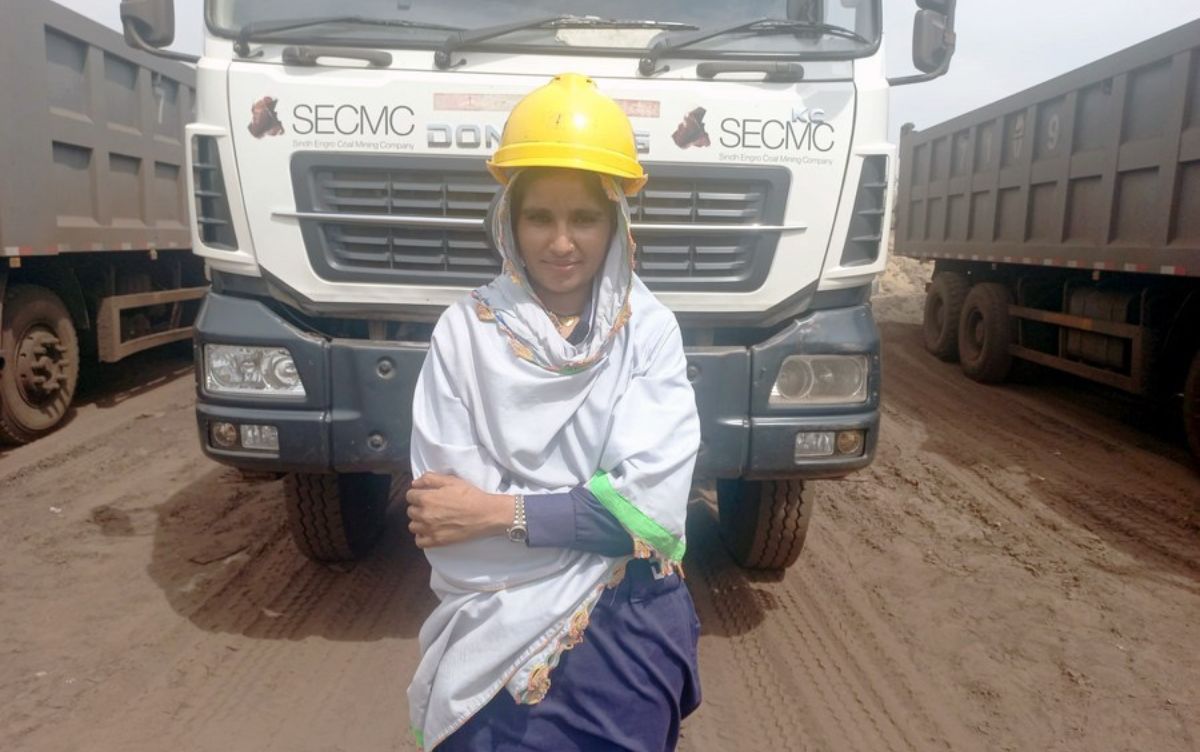Driving Change: Women at the Heart of CPEC's Next Phase
The China-Pakistan Economic Corridor (CPEC) is no longer just about infrastructure—it’s becoming a powerful platform for human development, especially women’s empowerment. As CPEC enters its second phase, women across Pakistan are stepping into vital roles once considered unimaginable, transforming local economies and reshaping gender norms.
In Tharparkar, Sindh—a region known for its traditional boundaries—up to 70 women have broken through as trained heavy dump truck drivers under the Thar Block II Project by Sindh Engro Coal Mining Company (SECMC). Their participation marks a significant milestone in both economic contribution and social change.
Meanwhile, in Balochistan’s coastal city of Gwadar, more than 20 women are mastering garment production inside a tailoring centre established within the Gwadar Port Free Zone. Supported by China Overseas Ports Holding Company (COPHC) and the Chinese Consulate, this initiative pays stipends and empowers women to produce uniforms for port workers, creating pathways to financial independence.
 P.c. China Pakistan Economic Corridor
P.c. China Pakistan Economic Corridor
According to Umair Pervez Khan, Secretary of the Consortium of Asia Pacific Studies (CAPS), this phase of CPEC reflects a deliberate pivot from pure infrastructure to inclusive, sustainable development. “CPEC is evolving into a platform of opportunity, where women are playing a pivotal role,” he told APP.
He noted that Special Economic Zones (SEZs) like Rashakai and Dhabeji are becoming models of integration, where women are increasingly contributing in manufacturing, logistics, and operations—sectors that have historically excluded them. To support this shift, there’s a growing push for vocational training centres, daycare facilities, and gender-sensitive work environments across SEZs.
Beyond economic benefits, CPEC is challenging deep-rooted social barriers. In areas where women once faced restrictions on mobility and employment, success stories from Thar, Gwadar, and Punjab are inspiring broader change. In Punjab, energy improvements in SEZs have uplifted female employment in textiles, while better transportation in Khyber Pakhtunkhwa is opening doors to urban jobs and training.
Sindh’s CPEC security force now includes 191 female officers—a signal that women are not just participating, but securing Pakistan’s future.
Pervez Khan emphasised the importance of community engagement and awareness to sustain this progress. “Each step a woman takes forward sparks a ripple effect. With the right support, these ripples can become waves of transformation,” he said.
Through inclusive policies and targeted initiatives, Pakistan is showing how infrastructure can become a foundation for social uplift. As the Belt and Road Initiative moves forward, women are no longer on the sidelines—they are at the centre of the country’s growth story.